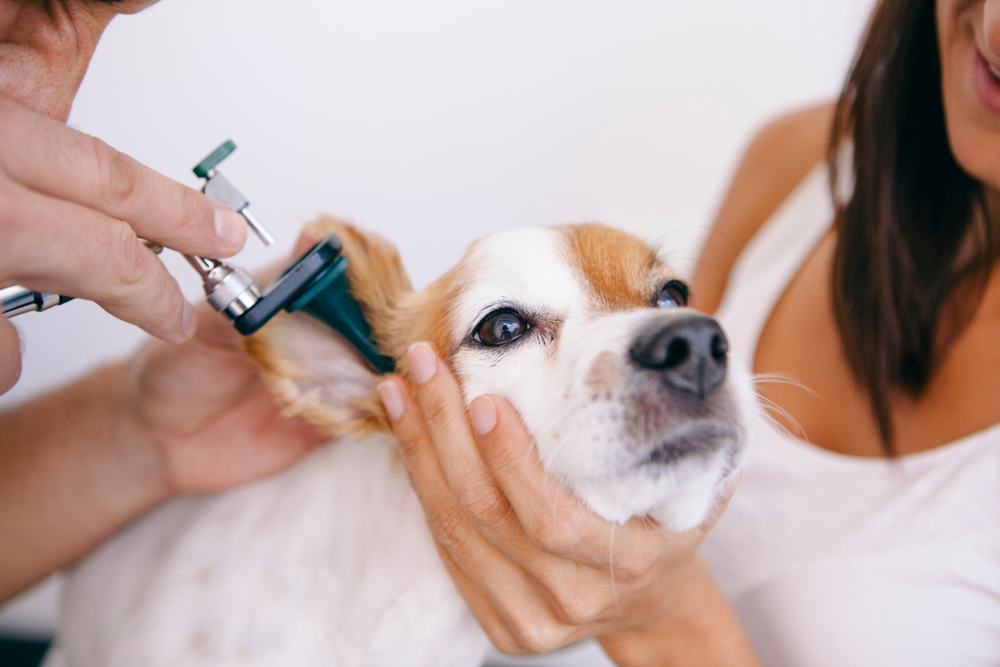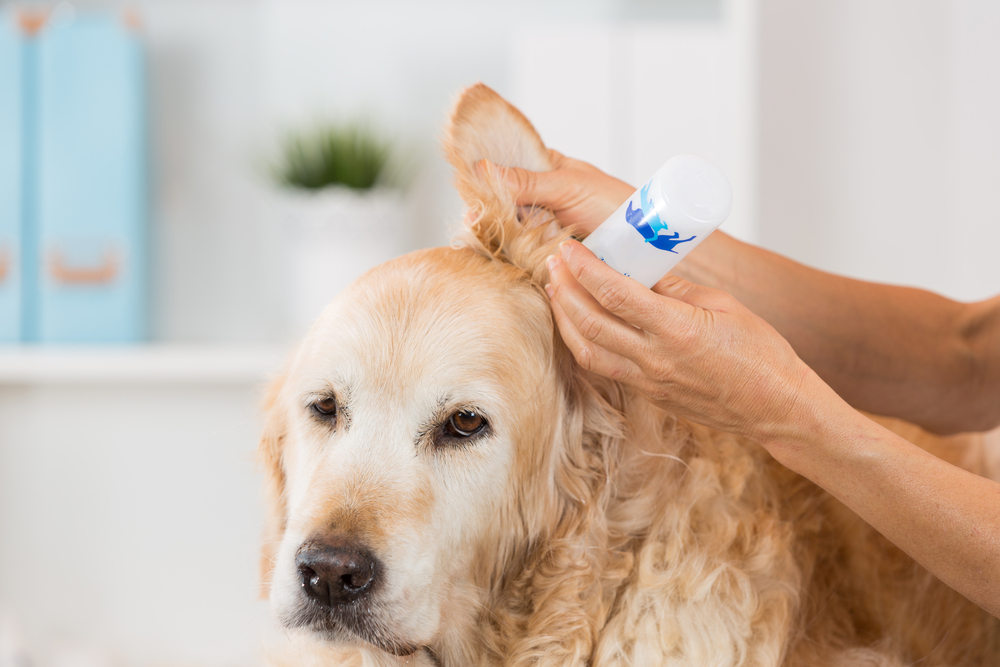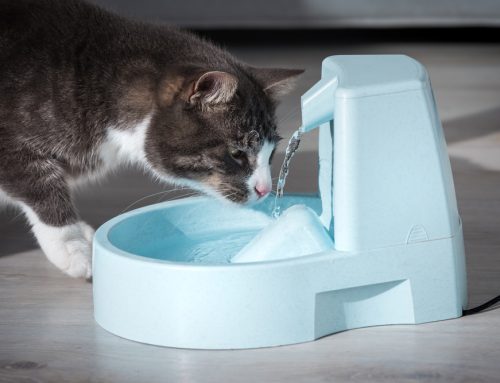Chronic Ear Infections in Dogs: Causes, Care, and Prevention
If your dog shakes their head frequently, scratches their ears relentlessly, or seems generally irritated, chronic ear infections could be the culprit. Many pet owners struggle with recurring ear infections, leading to frustration and discomfort for both the dog and the family. Chronic ear infections are not only painful for your dog but can also have lasting impacts on their hearing and overall health.
At High Point Animal Hospital in Plano, TX, our veterinary team understands how stressful persistent ear infections can be. With proper care, early intervention, and proactive prevention, you can help your dog enjoy a healthier, happier life.
Understanding Ear Infections in Dogs
Dog ear infections, or otitis externa, are an inflammation of the external ear canal. Dogs are particularly susceptible due to their ear anatomy—the canine ear canal has an “L” shape that can easily trap moisture, wax, dirt, and debris. This environment encourages bacteria and yeast to grow, leading to infections.
Dogs with long, floppy ears like Basset Hounds, Cocker Spaniels, and Golden Retrievers are at a higher risk due to limited airflow. However, any dog can develop ear infections, making it essential for all dog owners to remain vigilant.
Common Causes of Chronic Ear Infections
To effectively address chronic ear infections, it’s important to understand why they happen. Some of the most common contributing factors include:
Allergies
Environmental allergens, food sensitivities, and flea allergies often result in inflammation, making the ears particularly vulnerable. Allergies can cause swelling in the ear canal, leading to discomfort and infections. The American Kennel Club offers helpful insights in Dog Allergies: Symptoms & Treatment.
Foreign Objects and Debris
Dogs who spend time outdoors can pick up grass seeds, dirt, or foxtails in their ears. These foreign materials irritate the delicate ear tissue, triggering infections. To learn more about the risk of foxtails, see Foxtails and Their Risks to Pets – UC Davis Veterinary Medicine.
Moisture Retention
Frequent swimming or baths can trap moisture in your dog’s ears, creating ideal conditions for bacterial growth. Regular ear cleaning and proper drying techniques are essential to combat moisture-related infections. Cornell University’s guide on How to Clean Your Dog’s Ears can guide you through this process.
Breed and Anatomy Factors
Breeds with narrow, hairy, or floppy ears have naturally poor ventilation, contributing to chronic infections. Awareness and preventive care tailored to your dog’s breed can help reduce risks.
Recognizing the Signs: When to Be Concerned
Identifying ear infections early allows quicker intervention and less discomfort for your dog. Watch out for these common symptoms:
- Persistent head shaking or tilting
- Frequent scratching or rubbing of ears
- Redness, swelling, or inflammation of the ear canal
- Unpleasant odor or discharge from ears
- Sensitivity or pain when ears are touched
- Behavioral changes such as irritability or lethargy
Ear infections can progress quickly from mild irritation to severe pain. Untreated infections may lead to complications such as an ear hematoma, detailed in the AKC’s Ear Hematoma in Dogs, or even permanent ear damage.
Why Prompt Veterinary Treatment Matters
Chronic ear infections rarely resolve on their own and can lead to permanent hearing loss, severe discomfort, and structural ear damage if untreated. At High Point Animal Hospital, our veterinary team provides thorough evaluations, including:
- Detailed physical and otoscopic examinations to inspect ear canals
- Ear cytology tests to identify specific infections
- Allergy assessments to determine underlying triggers
Our on-site veterinary services provide quick diagnostic and treatment options to ensure your dog’s swift recovery.
Effective Treatment Options for Ear Infections
Treatment typically involves multiple steps, customized to your dog’s specific condition:
- Professional Cleaning: Removal of ear wax, discharge, and debris.
- Medications: Antibiotic, antifungal, or anti-inflammatory ear drops based on test results.
- Pain Management: Oral medications or topical therapies to provide comfort.
- Allergy Management: Identifying allergens, dietary adjustments, and medications to manage underlying causes.
With chronic, severe cases, a surgical procedure known as Total Ear Canal Ablation (TECA) may be recommended. You can learn more about TECA here. However, this option is usually reserved as a last resort.
Life with Chronic Ear Infections: Managing Day-to-Day Care
Caring for a dog prone to ear infections requires ongoing vigilance, including:
- Regular ear inspections for early detection
- Veterinary-approved ear cleaning routines
- Close monitoring of diet and environmental triggers
- Routine veterinary visits for follow-up evaluations
Proactive daily care dramatically reduces the likelihood of severe flare-ups and improves your dog’s overall comfort and happiness.
Prevention is the Best Medicine
Preventing chronic ear infections involves simple but consistent practices:
- Dry your dog’s ears thoroughly after swimming or bathing
- Regularly clean your dog’s ears as recommended by your veterinarian
- Keep ears trimmed and well-groomed
- Schedule regular veterinary check-ups
- Maintain proper flea control and manage allergies proactively
The veterinary team at High Point Animal Hospital can help establish a personalized ear care plan, tailored to your dog’s needs.
Preparing for Your Veterinary Appointment
To optimize your veterinary appointment at High Point Animal Hospital, consider bringing:
- A detailed description or log of your dog’s symptoms
- Information about recent diet changes, medications, or environmental factors
- Previous treatment or testing records if applicable
- Any questions or concerns you have about ear care and treatment options
Our fear-free approach ensures visits are comfortable for your dog, minimizing stress and anxiety during examinations and treatments.

FAQs About Dog Ear Infections
Can ear infections spread to other pets or people?
No, ear infections in dogs are typically not contagious. They usually result from organisms naturally found on the dog’s skin.
How often should my dog’s ears be cleaned?
Cleaning frequency depends on the dog’s breed, lifestyle, and medical history. Your veterinarian can recommend an individualized cleaning schedule.
Can chronic ear infections lead to hearing loss?
Yes, untreated chronic ear infections can cause irreversible damage and lead to partial or complete hearing loss.
Will my dog outgrow chronic ear infections?
Chronic ear infections usually persist unless underlying causes such as allergies, anatomical issues, or moisture problems are effectively addressed.
Partnering with High Point Animal Hospital for Healthy Ears
Chronic ear infections can be challenging and stressful, but pet owners are not alone in managing these issues. The dedicated veterinary team at High Point Animal Hospital is here to guide you every step of the way. Our experienced professionals offer compassionate, personalized care to ensure your dog’s health, happiness, and comfort.
For more information about our veterinary practice or to schedule an appointment, please visit our services page, meet our skilled team, or contact us directly. At High Point Animal Hospital, we prioritize your pet’s health and well-being, partnering with you to create a lifetime of healthy ears and happy tails.







Leave A Comment